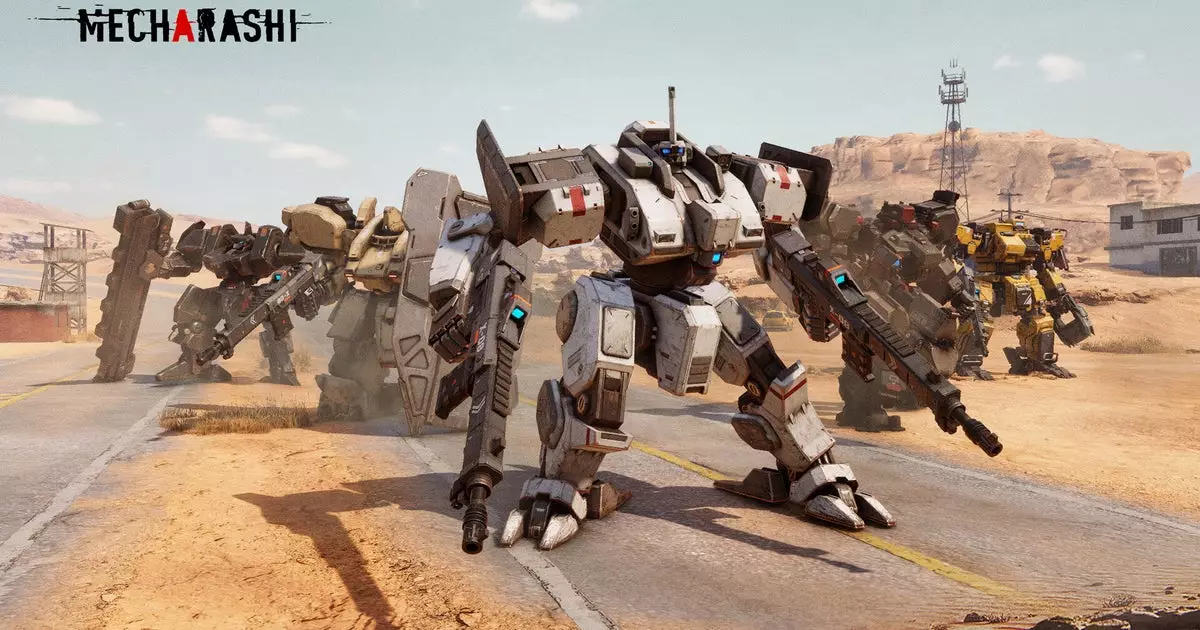For fans of tactical mech games, the recent developments surrounding the Front Mission franchise have been nothing short of disheartening. Square Enix’s abrupt cancellation of Front Mission 2089: Borderscape in 2022 left many gamers in a loop of nostalgia and frustration. Originally promised as an exhilarating mobile title developed by BlackJack Studio, expectations were high. However, the dissolution of the project not only dashed hopes for fans looking forward to reviving the beloved series but also signaled a potential decline in the company’s commitment to classic franchises. The announcement had barely registered before Square Enix opted to pull the plug, leaving the community speculating about the reasons behind the decision.
A New Type of Mecha Game Emerges
Following the cancellation, BlackJack Studio shifted their focus towards a new endeavor, which they brought to life in the form of Metal Storm—also known as Mecharashi. This game, released in October 2024, piqued the curiosity of the gaming community with its promise of strategic mecha combat. The game’s resemblance to Front Mission was undeniable, featuring a tactical turn-based combat system, mecha customization, and a selection of unique pilots. For many, the excitement was rekindled, albeit under a different banner. However, the similarities raised eyebrows, ultimately leading to a fierce confrontation between Square Enix and BlackJack.
The Legal Battle: A David vs. Goliath Saga
Square Enix has taken a particularly aggressive stance in this dispute, as they have filed lawsuits in both the United States and Japan, arguing that Metal Storm infringes on their intellectual property. With allegations focused on the use of design elements and mechanics developed under the now-canceled Borderscape project, the legal proceedings have become a highly scrutinized spectacle. The use of DMCA takedowns and the sheer scale of this lawsuit—evidenced by the extensive 11-page complaint—indicate that Square Enix is prepared to exhaust significant resources to safeguard their brand.
BlackJack, however, inspired a fair share of empathy among the gaming community. Their counterclaims have allowed Metal Storm to remain available on platforms like Steam, albeit under a cloud of uncertainty. While this legal battle unfolds, one can’t help but feel for an indie studio striving to establish its identity amidst the shadow of an industry giant.
What’s at Stake for Fans and Developers Alike?
This saga raises poignant questions not just about property rights but about the future of creativity within game development. Are game developers merely extensions of corporate entities, or can they cultivate their own innovative ideas, even if inspired by past successes? The vibrant mecha designs presented in Metal Storm have sparked debate over artistic reimagination versus direct appropriation. With aesthetics reminiscent of the original Front Mission, there’s a lingering sentiment that while nostalgia is a powerful tool, it can also lead to contentious disputes.
For fans eagerly awaiting more tactical mech experiences, this clash serves as a stark reminder of the complexities inherent in the gaming industry. As the legal pendulum swings, it’s difficult not to hope for an amicable resolution that could potentially pave the way for quality titles, whilst honoring the legacy that franchises like Front Mission have carved into gaming history. The desire for fresh, tactically rich experiences remains robust among a gaming community that yearns to pilot their mechanized dreams once more.


Leave a Reply